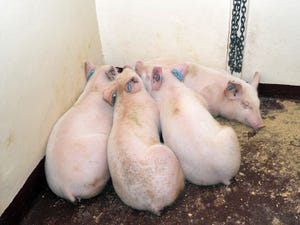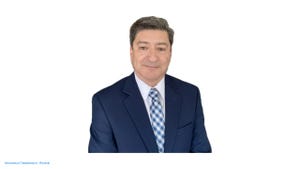Farm Tax Deduction Limits Raised
Farmers received some welcome tax relief for machinery and equipment purchases, says Roger McEowen, director, Iowa State University Center for Agricultural Law and Taxation
February 18, 2011

Farmers received some welcome tax relief for machinery and equipment purchases, says Roger McEowen, director, Iowa State University Center for Agricultural Law and Taxation.
“From a farm tax standpoint, one of the biggest changes for 2010 and 2011 is the expansion of the Section 179 tax deduction to $500,000, and the introduction of 100% bonus depreciation for new assets bought after Sept. 8, 2010 and before Jan. 1, 2012,” he says. “With those two new rules, almost all farmers who purchase new and used equipment during these time periods will be able to completely deduct their purchases if they so choose.”
Previously, the limit to Section 179 tax deductions had been $250,000, and the limit to bonus depreciation had been 50%, he says.
Proceed with Caution
Although maximizing deductions for all farm equipment purchases may sound like a sensible financial strategy, there are instances when taking those deductions could be financially detrimental, McEowen cautions. One especially important point for farmers to consider before claiming a large deduction on either new or used equipment is how long they intend to own that equipment before reselling it, he points out.
“If you take a deduction on an asset that you purchase, and then sell that asset after owning it for only a few years, you might have to pay a hefty tax on the amount of money you saved in taxes by taking that deduction,” McEowen says. “So you may want to sit down with a tax counselor before taking some of these deductions to make sure you’re not stuck with what’s called ‘depreciation recapture’ further down the road.”
Do the Math
An example may help illustrate other considerations to keep in mind when making tax deduction decisions for farm-asset purchases.
“Let’s say a farmer is purchasing a tractor this year,” McEowen says. “First, the farmer must decide whether or not to take a Section 179 deduction and/or bonus depreciation. The Section 179 deduction can be as high as $500,000, and it applies to both used and new equipment, whereas the bonus depreciation only applies to new assets. However, there are two limitations to the Section 179 deduction:
1. The farmer must have taxable income from farm operations and other businesses at least equal to their planned Section 179 deduction (including most wages that they earn), and
2. They must not purchase more than $2 million in equipment for 2010. Purchases above this amount start to reduce the Section 179 deduction dollar for dollar.
“In the case of this farmer, as long as the farm is profitable and net income from farming and after other depreciation is more than the cost of the tractor, then the farmer will be able to completely deduct the cost of the tractor in 2011,” McEowen adds. “Any amount not deducted under Section 179 will be depreciated over seven years.”
Five Rules for Deductions
Farmers can follow five general rules to make the most from new, tax-law deduction changes related to farm asset purchases, McEowen explains.
First, take 100% bonus on “new” assets that qualify (class life of 20 years or less, which includes most new agricultural buildings) and then Section 179 tax deductions on all “used” assets that qualify (special rules can apply if assets are leased), including single-purpose agricultural structures, such as a hog confinement facility, but no real estate.
Next, take full Section 179 tax deductions to the extent possible, first on assets with the longest class life. “For example, if you have $100,000 of 10-year property and $600,000 of seven-year property, take Section 179 on $100,000 of your 10-year and $400,000 of your seven-year property,” McEowen explains.
Next, take 50% bonus depreciation on all other new assets that qualify.
Next, take normal depreciation on the remaining value.
Finally, consider meeting with a tax professional to evaluate tax implications for both past and future farm asset purchases.
John Pocock is a freelance writer based in Minnetonka, MN.
About the Author(s)
You May Also Like



